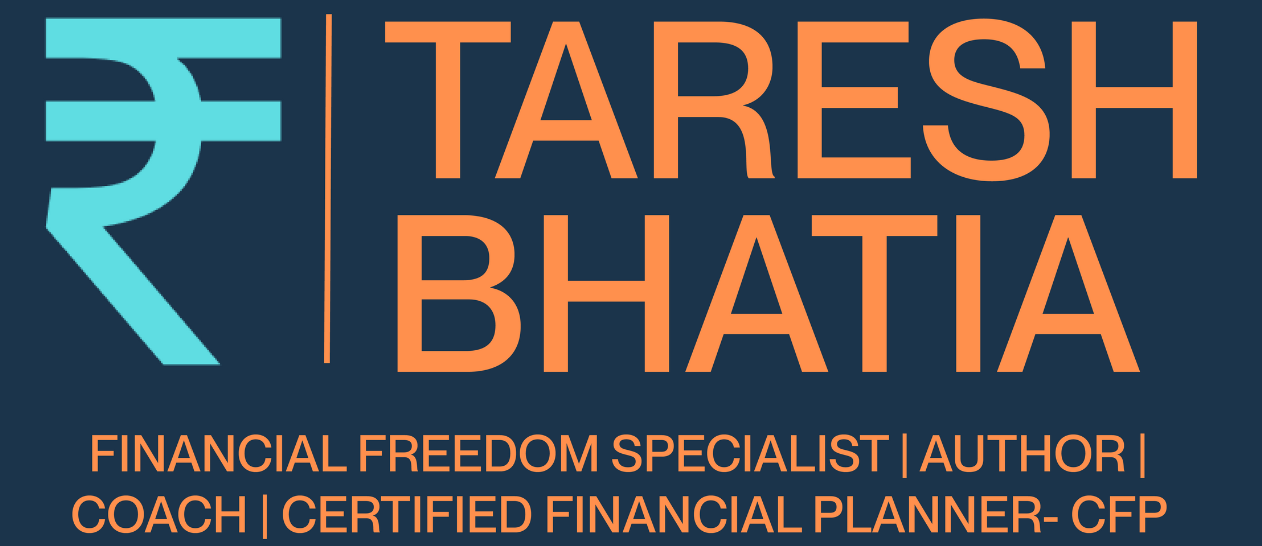Introduction
As a CERTIFIED FINANCIAL PLANNER and a coach at the Richness Academy, I am dedicated to guiding my clients towards achieving financial freedom and living a rich, fulfilling life. Over the years, I have encountered numerous financial philosophies and strategies, but few have resonated as profoundly as the lessons from George S. Clason’s “The Richest Man in Babylon.” This timeless classic imparts invaluable financial wisdom through a series of engaging parables set in ancient Babylon. The principles outlined in the book are not only universally applicable but also incredibly relevant to the financial landscape of Indian investors today.
In this blog, I will review ten key lessons from “The Richest Man in Babylon” and provide practical insights into their relevance and implications for Indian investors. By presenting these lessons through the lens of common experiences and simple perspectives, I hope to inspire a deeper understanding and adoption of these principles.
1. Pay Yourself First
The principle of “paying yourself first” emphasizes the importance of saving a portion of your income before spending on anything else. This ensures that you are consistently building your savings and securing your financial future. In India, the concept of saving is deeply rooted in our culture. However, the discipline of setting aside a fixed percentage of income before any expenditure is often overlooked. Many people tend to save whatever is left after spending, which can result in inconsistent and inadequate savings. Adopting this principle can significantly enhance financial stability and growth. By consistently saving a portion of your income, you create a financial buffer that can be used for investments, emergencies, or future goals. For instance, Anil, a 35-year-old IT professional from Bengaluru, started saving 10% of his salary every month. Over time, his disciplined approach allowed him to build a substantial corpus, which he later invested in mutual funds and stocks, further multiplying his wealth.

2. Live Below Your Means
This principle advises individuals to differentiate between their needs and wants and to prioritize spending on necessities and investments over luxuries. It’s about adopting a frugal lifestyle that ensures long-term financial health. The rising consumerism in India often tempts individuals to spend beyond their means, driven by the desire to keep up with societal standards. Distinguishing between essential and non-essential expenses is crucial for maintaining financial health. Living below your means is essential for saving more and reducing financial stress. Priya and Raj, a young married couple from Gurugram, realized that their extravagant lifestyle was hindering their financial goals. By cutting down on unnecessary expenses and focusing on essentials, they managed to save a significant amount, which they invested in a property. This shift not only improved their financial situation but also brought them closer to their long-term goals.
3. Make Your Money Work for You
Instead of letting your money sit idle, invest it in opportunities that can generate returns, such as businesses, real estate, or financial instruments. The Indian market offers a plethora of investment opportunities, including mutual funds, stocks, fixed deposits, and real estate. However, many investors hesitate due to a lack of knowledge or fear of risks. Making informed investment decisions can significantly enhance your financial growth. Ramesh, a businessman from Mumbai, attended a financial literacy seminar that opened his eyes to the potential of mutual funds. By diversifying his investments and seeking professional advice, Ramesh saw his portfolio grow substantially, securing his financial future.

4. Ensure a Future Income
This principle emphasizes the importance of long-term financial planning, ensuring that you have a stable income during your retirement years. In India, the concept of retirement planning is gaining importance, especially with limited social security benefits. Many individuals still rely on family support, which may not always be reliable or sufficient. Investing in retirement plans such as Public Provident Fund (PPF), National Pension System (NPS), or other long-term investments can ensure a comfortable and financially secure retirement. Seema, a school teacher from Pune, started contributing to a PPF and NPS early in her career. Her disciplined approach and foresight ensured that she had a substantial corpus upon retirement, providing her with financial independence.
5. Guard Your Wealth from Loss
This principle stresses the importance of safeguarding your wealth from high-risk ventures and frauds by consulting with trusted advisors. The Indian financial market is susceptible to various high-risk schemes and scams that promise quick returns. Many people, driven by greed or desperation, fall prey to these traps. Seeking advice from certified financial planners or trusted advisors can help you avoid costly mistakes and protect your investments. Vinod, a retiree from Delhi, was tempted by a high-return investment scheme. Thankfully, he consulted a financial advisor who warned him about the risks involved. Vinod decided against the investment, thereby safeguarding his wealth from potential loss.

6. Own Your Home
Owning a home provides not only a sense of stability but also serves as a significant financial asset over time. Homeownership is a common aspiration in India, symbolizing stability and success. However, the high property prices in urban areas make this goal challenging. Planning and saving diligently for a home can provide long-term financial benefits. Kavita, a software engineer from Hyderabad, made it a priority to save for a down payment on a house. By living frugally and investing wisely, she was able to purchase her own home within eight years. This not only provided her with stability but also became a valuable financial asset.
7. Invest in Yourself
Investing in education and skills development can enhance your earning potential and help you make better financial decisions. In a rapidly evolving job market like India’s, continuous learning and skill enhancement are crucial for career growth and financial success. Investing in oneself can lead to better job opportunities and higher earning potential. Anjali, a marketing professional from Mumbai, invested in advanced certifications and skill development courses. Her improved expertise led to a promotion and a significant salary hike within two years, enhancing her financial situation and career prospects.
8. Take Responsibility for Your Financial Future
This principle emphasizes the importance of being proactive in managing your finances and not relying on luck or others to secure your financial well-being. Many Indians rely on family members or friends for financial advice, which may not always be sound or tailored to their needs. Taking responsibility for your financial future involves educating yourself and making informed decisions. Rohit, an entrepreneur from Chennai, realized the importance of financial literacy and started managing his finances independently. By taking control, he made informed decisions that led to the growth of his business and personal wealth.
9. Increase Your Ability to Earn
By continuously improving your skills and knowledge, you can increase your value in the job market and command higher wages. The Indian job market is highly competitive, and staying relevant requires constant skill upgrades and adaptability. Focusing on skill development can lead to higher earnings and greater financial growth. Nisha, a graphic designer from Delhi, invested in learning new design software and techniques. Her enhanced skills attracted higher-paying clients and increased her annual income by 40%, demonstrating the power of continuous learning.

10. Seek Wise Counsel
Seeking advice from experienced and knowledgeable individuals can help you avoid costly mistakes and make better financial decisions. In a country where financial literacy is often low, seeking expert advice can be invaluable. Surrounding yourself with financial experts and mentors can provide valuable insights and guidance. Manish, a young entrepreneur from Ahmedabad, regularly consulted with a financial advisor. This guidance helped him avoid costly mistakes and make sound investment decisions, significantly boosting his business and personal finances.
My Furthermore Experience
These lessons hold significant value as I believe the journey towards financial freedom begins with self-awareness and acceptance of these facts.
As I have coached my clients, I have observed that the first step towards financial transformation is acknowledging the current financial state and being open to adopting new principles.
Awareness is the foundation of change. Recognizing the importance of financial discipline and understanding where you currently stand financially are crucial steps. Many of my clients initially struggle with this step, but it’s only by accepting their financial realities that they can begin to take meaningful action.
Once there is awareness, the next step is to acknowledge the value of these lessons and agree to incorporate them as guiding principles. This involves a mental shift, where one agrees to prioritize financial health over immediate gratification.
This acceptance is pivotal as it lays the groundwork for consistent, disciplined financial behavior.
There’s immense power in writing down goals and principles. I encourage my clients to document these lessons as actionable goals. This act of writing down serves as a constant reminder and reinforces their commitment to financial discipline. It transforms abstract concepts into concrete plans.
Visualization is a powerful tool that helps in manifesting goals. I advise my clients to visualize their financial success, imagine the benefits of applying these principles, and see themselves achieving financial freedom. This mental exercise helps in maintaining motivation and focus, especially when the journey gets challenging.
Finally, the most crucial step is taking action. It’s about making practical provisions and setting up systems that facilitate the implementation of these principles. Whether it’s setting up automatic savings, investing in financial education, or consulting with a financial advisor, these actions turn plans into reality. It’s through these small, consistent steps that significant financial transformations occur.
Conclusion
“The Richest Man in Babylon” offers timeless financial wisdom that is incredibly relevant for Indian investors. By adopting principles such as paying yourself first, living below your means, making your money work for you, ensuring a future income, guarding your wealth, owning your home, investing in yourself, taking responsibility for your financial future, increasing your ability to earn, and seeking wise counsel, Indian investors can build and sustain wealth over time. These principles, when applied diligently, can lead to financial freedom and a rich, fulfilling life. As a financial coach, I have seen firsthand how these lessons transform lives, and I encourage all investors to embrace these timeless truths for a secure financial future.
The author of this article is Taresh Bhatia, a CERTIFIED FINANCIAL PLANNER PRO who has authored an Amazon best seller-“The Richness Principles”. He can be reached at taresh@tareshbhatia.com
©️2024: All Rights Reserved. Taresh Bhatia
Subscribe Now for Upcoming Blogs!



